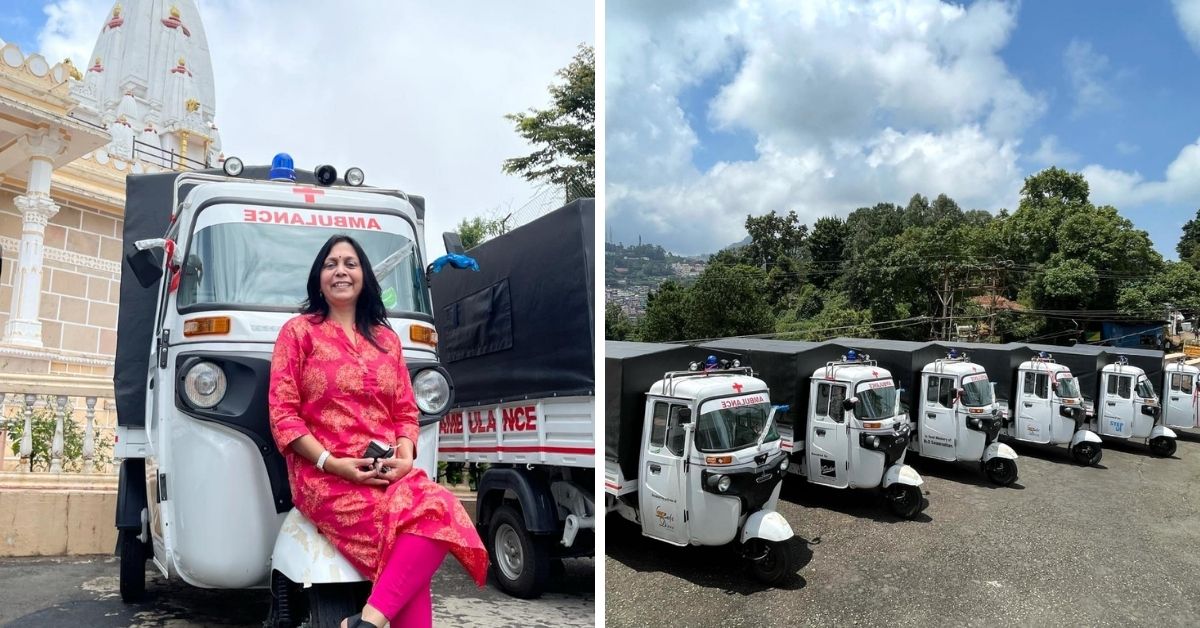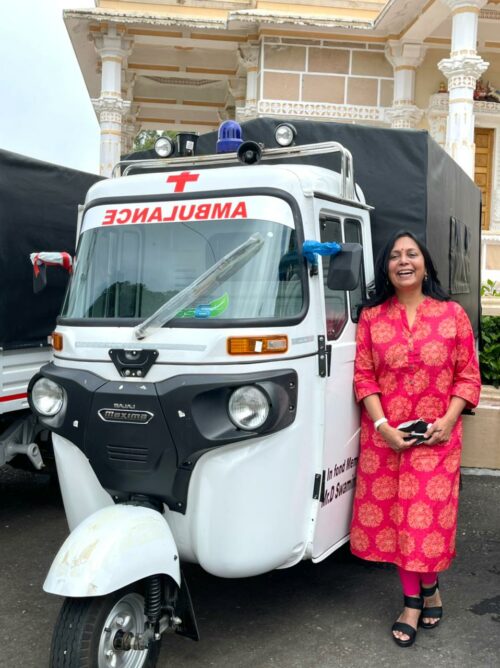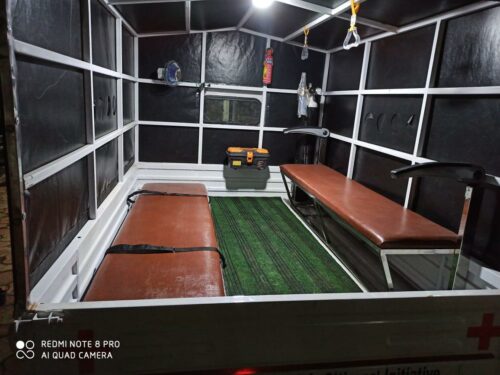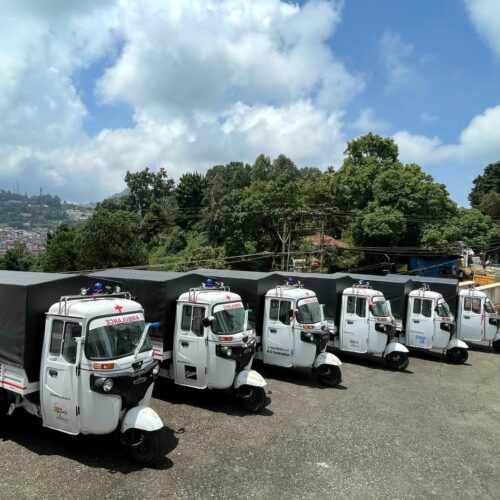Cafe Owner Designs & Donates 6 Auto Ambulances for Patients in the Nilgiris
Radhika Shastry runs Cafe Diem in Coonoor. When she saw the second wave of COVID-19 ravage the Nilgiris, she decided to design an auto-ambulance with a stretcher, two seats for attendants, an oxygen cylinder and a first aid kit.

The steep slopes of Tamil Nadu’s Nilgiri hills are visited by most as a tourist attraction. But only its natives know of the hassles of daily living that arise with the steep terrain of the slopes.
With peak elevation reaching a height of 2,636 meters, these western ghats pose a barrier in ambulatory care and accessibility to infrastructure. In times of emergency, this becomes a matter of life and death.
Coonoor’s Radhika Shastry, the owner of the quaint Cafe Diem, saw this issue and decided to make it better.
In May 2021, when COVID-19 saw a sudden spike, all of the meagre medical infrastructure of the area was employed in combating the disease.
“It’s common knowledge that these steep hills cannot be covered on foot, which makes accessing hospitals difficult. But one day, I overheard a chance conversation about a woman who had high blood pressure, but could not get treatment for the lack of transportation,” Radhika shares with The Better India.
According to her, the waiting time for ambulances would go up to a few days, as the terrain was tough and priority was being given to patients with the virus. Struck by this reality, Radhika devoted all her time to making a change. Call it a play of luck if you will, but due to the lockdown, her cafe had the shutter down that month.

In the process, a WhatsApp forward told her about a project started by Vivek Tankha in Jabalpur, Madhya Pradesh. He was making custom battery operated ambulances out of auto rickshaws.
“This inspired an idea. I began researching the requirements of the terrain. I rode for 22 km in auto rickshaws and talked to their drivers to understand what worked and what did not,” she says. One of the major concerns they shared was about the weather conditions. Travelling through the hills was difficult for most drivers due to the lack of weather-resistant vehicles with sturdy tops.
With the specifics in mind, she contacted the industrious manufacturer to design a model specifically for the Nilgiris. This, however, posed its own challenges.
“The concerns that those of us down south faced were a surprise to him. Despite constant back and forth, he could not understand the height and terrain of the hills,” Radhika notes.
Something had to be done while the problem was at its peak, which is why looking for a new manufacturer in south India did not make sense to Radhika. To overcome this hurdle, she decided to undertake the arduous journey to the top of the hill and click a picture as a visual representation of the land.
Finally, the ideal auto was agreed upon and readied to be manufactured. They were to be called ‘AmbuRX’ — an acronym for ‘ambulance’ and the medical abbreviation ‘Rx’.
The model Radhika came up with is a diesel run auto ambulance. The vehicle used is the 470 cc Bajaj Auto Rickshaw, the back of which is extended to hold equipment and people. It contains a stretcher for the patient, two seats for attendants, an oxygen cylinder, and a first aid kit. The stretchers come equipped with a seat belt to save patients from the jolts of the journey. The driver’s seat is separated by a partition for carriage of COVID-19 patients.

AmbuRx is not yet equipped with cardiac equipment.
The People of Nilgiri
Getting such a vehicle customised required funding, which Radhika received from the generous patrons of her restaurant.
A total of Rs 24 lakh was required for the manufacturing and delivery of six ambulances. To gather this amount, she created a video narrating the cause and posted it on social media with a call to action.
“While I funded one myself, the five others were taken care of by benefactors like Step Up Foundation,” she reveals.
Within 30 days, the ambulances were ready and delivered.

Upon careful scrutiny, Radhika decided to donate them to a list of hospitals and NGOs. This includes Three Star Ambulance Service, Pushpa Hospital, KMF Hospital and Kinder Trust.
The vehicles have made between 1,500 to 5,000 trips till now, and continue to save lives and cater to health on a daily basis.
Edited by Divya Sethu
If you found our stories insightful, informative, or even just enjoyable, we invite you to consider making a voluntary payment to support the work we do at The Better India. Your contribution helps us continue producing quality content that educates, inspires, and drives positive change.
Choose one of the payment options below for your contribution-
By paying for the stories you value, you directly contribute to sustaining our efforts focused on making a difference in the world. Together, let’s ensure that impactful stories continue to be told and shared, enriching lives and communities alike.
Thank you for your support. Here are some frequently asked questions you might find helpful to know why you are contributing?


This story made me
-
97
-
121
-
89
-
167













